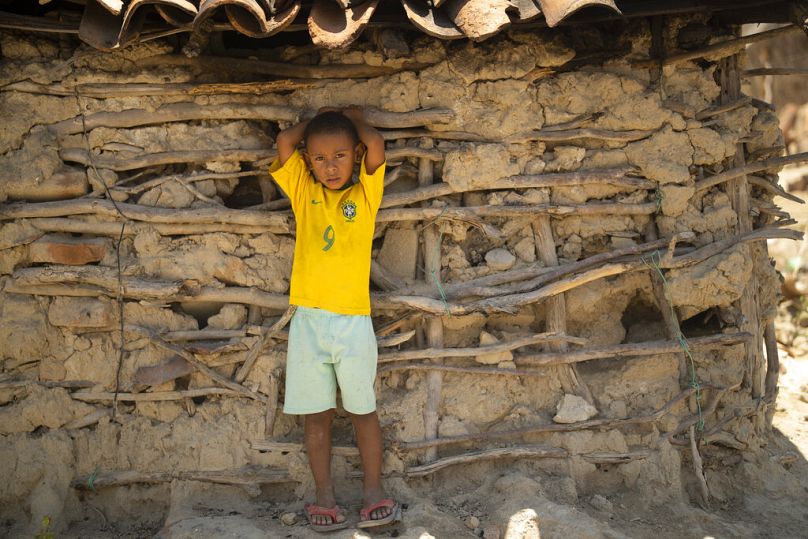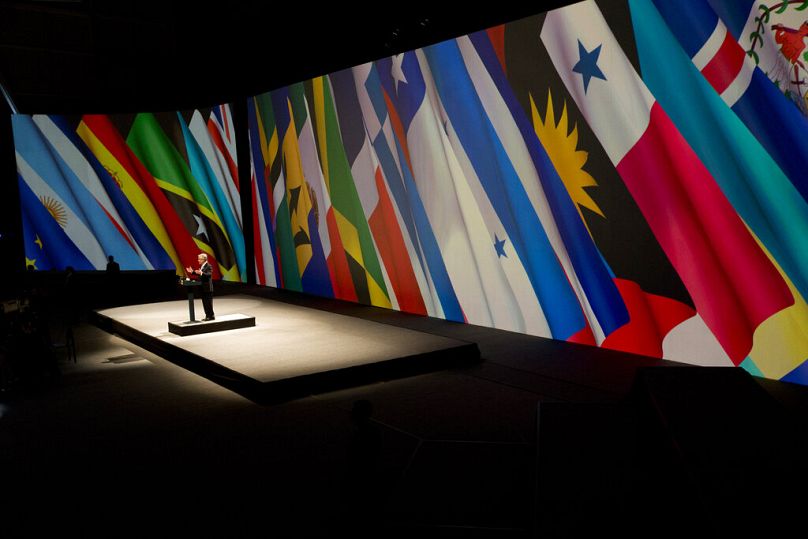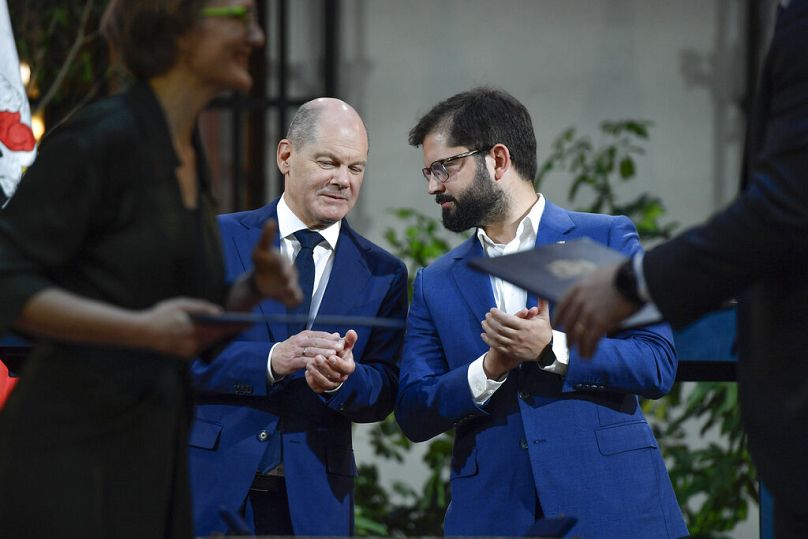A leap in relations will help the EU secure vital resources for the green transition, counter Chinese influence in the region, and diversify trade to avoid strategic dependencies, economist Carla Subirana explains.
When Russia embarked on its full-scale invasion of Ukraine last February, the European Union realised that Moscow's act of aggression meant Brussels had to look for economic partners elsewhere.
 ADVERTISEMENT
ADVERTISEMENT
 ADVERTISEMENT
ADVERTISEMENT
South America should have been the first on Brussels' speed dial.
Yet, in reality, the two continents tend to treat each other with a combination of indifference and contempt.
Latin American diplomats would say that Europe tends to take the region for granted — especially its former colonies. At the same time, the EU appears not to have worked out clearly what it wants of its relationship with Latin America.
The detachment between the two blocs is summed up by the fact that the last EU-Latin America summit took place seven years ago, while a trade agreement between the EU and the Mercosur union — comprising Argentina, Brazil, Paraguay and Uruguay — has been stalled for more than two decades.
In Brussels' absence, Beijing became Latin America's best friend
However, if the EU wants to wean itself off Russian energy and lead the clean-energy transition, officials in Brussels will need to renew ties with their Latin American counterparts by forging new trade deals, as the region is home to several metals that are critical to building a green economy.
The demand for rare earth metals in the EU — already at its highest — is expected to surge fivefold by 2030, yet Europe produces a negligible share of the minerals it needs in its race for renewables.
By contrast, Chile owns 42% of the world's lithium reserves, a key component of electric car batteries, and a quarter of its copper deposits, used in everything from grids to turbines. Peru, too, holds nearly a quarter of the world's silver, which is essential in producing solar panels and electric cars.
Putting new life into that old relationship would also help the EU diversify trade to avoid strategic dependencies with China, as concerns are mounting in Brussels about the bloc's over-reliance on Beijing as a market for goods and raw materials for its green transition.
In turn, deepening ties would also alleviate the economic semi-stagnation of Latin America, hard-hit by globalisation, enabling European companies to shift production from China to the Americas.
Another reason the EU should increase ties with Latin America is to counter Beijing's rising influence in the region. To avoid the same mistake as in Africa — where Chinese firms have monopolised cobalt mining, essential for electric vehicle batteries, accounting for an estimated one-eighth of the continent's industrial output — the EU needs to step up its game.
Over the past decade, China has been systematically building its supply chain in these critical minerals. It increased its investments in Latin America 26-fold between 2000 and 2020 and is now the primary stakeholder in two of the ten biggest lithium mines in Chile, as well as Mercosur's largest single trade partner (and the second-biggest for Latin America as a whole).
In Brazil, China Three Gorges, the world's largest hydropower provider, controls almost half of its hydro plants. At the same time, China's State Grid Corp is the country's largest power generation and distribution company.
Moreover, 19 governments across Latin America and the Caribbean have joined Xi Jinping's signature Belt and Road Initiative, a nearly €1-trillion transcontinental trade and infrastructure network.
'Pink wave' of left-leaning leaders a chance for relations reset
However, after years of EU disengagement, it seems that the political stars have aligned to enable a qualitative leap in relations between the bloc and Latin America.
Putin's war in Ukraine and China's rising authoritarianism have woken Brussels to the enormous challenges the bloc has to face, and politicians are now scrambling to forge new deals to secure raw materials.
Last December, the EU concluded a trade deal with Chile that will give it easier access to lithium, copper and other minerals vital to its renewable energy industry. Currently, 67% of Chile's copper exports go to China, while just 5% go to the EU.
Yet another disadvantage for Brussels can be gleaned from the fact that Chile's raw materials are processed in China and resold at a markup, with the difference often coming out of the pockets of Europeans.
Some things have changed as of late, however.
Chile's leftist President Gabriel Boric is seeking to boost manufacturing jobs by reducing the country's reliance on raw exports to China and instead having more of the production process based locally.
Moreover, socialist Luiz Inácio Lula da Silva's victory in Brazil's presidential election on 30 October has revived EU trade hopes for Latin America.
It was Lula's return that also brought back talks about the EU-Mercosur trade deal, now poised to be ratified by the end of the year — a pact blocked by European countries in 2019 after his predecessor, far-right firebrand Jair Bolsonaro, allowed Amazon's deforestation to spike by 59.5%.
Boric and Lula both belong to the so-called "pink wave" of left-leaning Latin American heads of state at the helm of six out of seven of the region's biggest economies.
Strike while the iron is hot
German Chancellor Olaf Scholz's recent trip to the region was, in many ways, a chance for Europe to use this new era to its advantage.
In late January, he met with Boric to secure additional supplies of the lithium needed for its electric car industry, promising in return to help Chile develop its processing sectors. This week with Lula, he talked Mercosur.
Others in the EU, too, are looking to boost relations: a mix of trade-friendly countries — Sweden and Spain — are set to hold the bloc's Council presidency this year, and the need to decouple from Russian gas and reduce Chinese dependencies are at the top of the agenda, which is bound to incentivise officials to forge new deals.
Yet, none of this will happen if Europe doesn't strike while the iron is hot.
In the face of mounting geopolitical challenges and the urgent need to speed up the energy transition, Brussels needs a major reset of policy towards Latin America. It's time to open political dialogue and diversify friendships.
Carla Subirana is an economist who has worked as a policy analyst for the Bank of England and Europe analyst for Economist Intelligence.
At Euronews, we believe all views matter. Contact us at view@euronews.com to send pitches or submissions and be part of the conversation.













